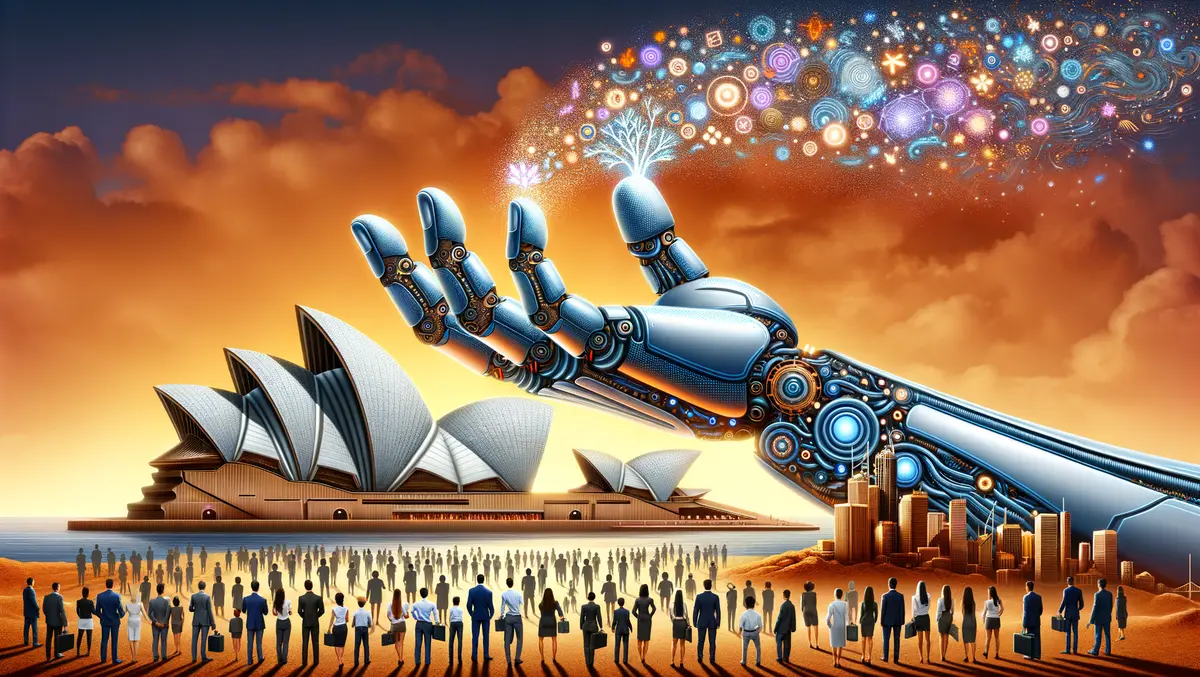
Aussie firms prioritise talent development amid AI revolution
New research from LinkedIn reveals that talent development is pivotal in a working world being revolutionised by artificial intelligence (AI).
LinkedIn reported a 21-times surge in job postings mentioning GPT or ChatGPT on a global scale in 2023 and notably, 90% of companies in Australia are planning initiatives to enhance their employees' skills and competencies this year, with 39% intending to offer online training and development programmes. Almost two-fifths (39%) of hiring managers are prioritising career progression opportunities within their organisations, attesting to an increasing focus on internal mobility.
There are compelling reasons behind this shift – AI is anticipated to transform the employment market dramatically in Australia by 2030, altering the skills required for job roles by an astonishing 66%. Companies are thus prioritising the development of both hard and soft skills among their workforce. The most highly valued skills include problem-solving abilities (45%), communication skills (40%), critical thinking (31%), time management (25%), and listening skills (16%).
"Investing in people's growth is no longer a perk but a strategic imperative. In the era of AI, our workforce is the driving force behind companies' success," comments Adam Gregory, Senior Director, ANZ at LinkedIn Talent and Learning Solutions. "We are witnessing a pronounced shift towards skills – both technical and soft – to thrive in the era of AI. Communication is currently the most in-demand soft skill in Australia, as AI tools allow professionals to focus on uniquely human tasks."
The growing importance of soft skills is underscored by the fact that 71% of Australian employers have reported significant changes in the attributes they prioritise in job candidates, driven by the influence of AI and automation. LinkedIn's latest Workplace Learning Report shows that 95% of Learning & Development professionals in ANZ believe soft skills are becoming more competitive in our economy, of which communication ranks the highest.
LinkedIn's recent survey indicated that internal mobility is becoming a cornerstone in attracting and retaining top talent, with 39% of leaders citing career progression opportunities as their main priority this year. A third of hiring managers believe career growth opportunities, along with competitive salary and benefits, are key to retaining talent. Meanwhile, highlighting opportunities for advancement and increasing internal mobility are considered by 45% of employers as the best ways to attract new talent.
LinkedIn is aiding firms with their transition to a skills-centric approach by launching a number of innovative AI-driven tools, which include AI-powered coaching in LinkedIn Learning — a chatbot experience offering real-time advice and personalised content recommendations — as well as new features to support career development and internal mobility.
Scott Marshall, Head of Organisational Capability at Woodside Energy, said: "Supporting the development of our people both technically and in leadership capabilities is front and centre for Woodside. Recognising the different ways in which people learn, the future skills required and ensuring a blend of methods to support that learning is critical. Our LinkedIn user data shows that our people are engaging across leadership capabilities, technical skills and in new technology capabilities such as AI."


